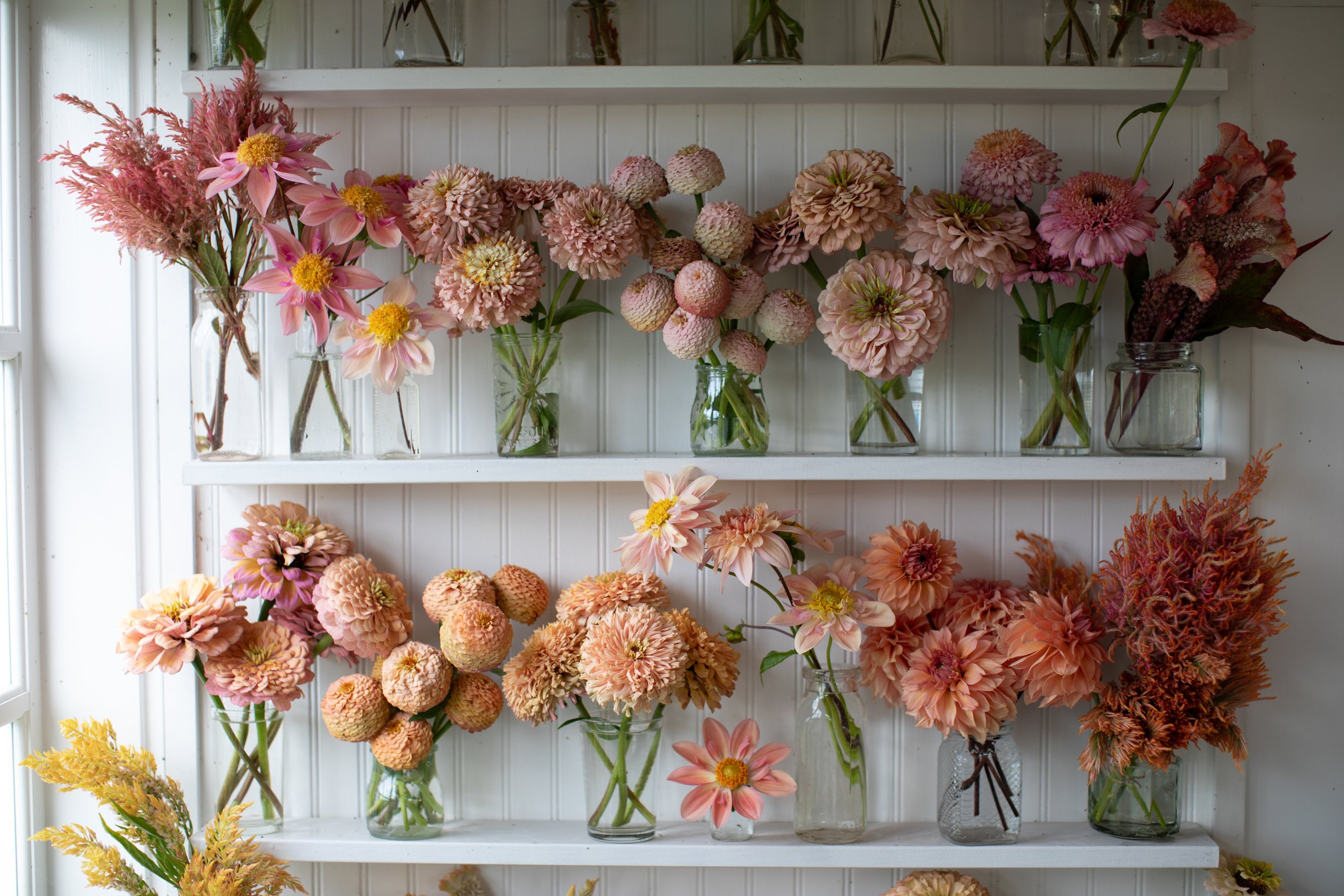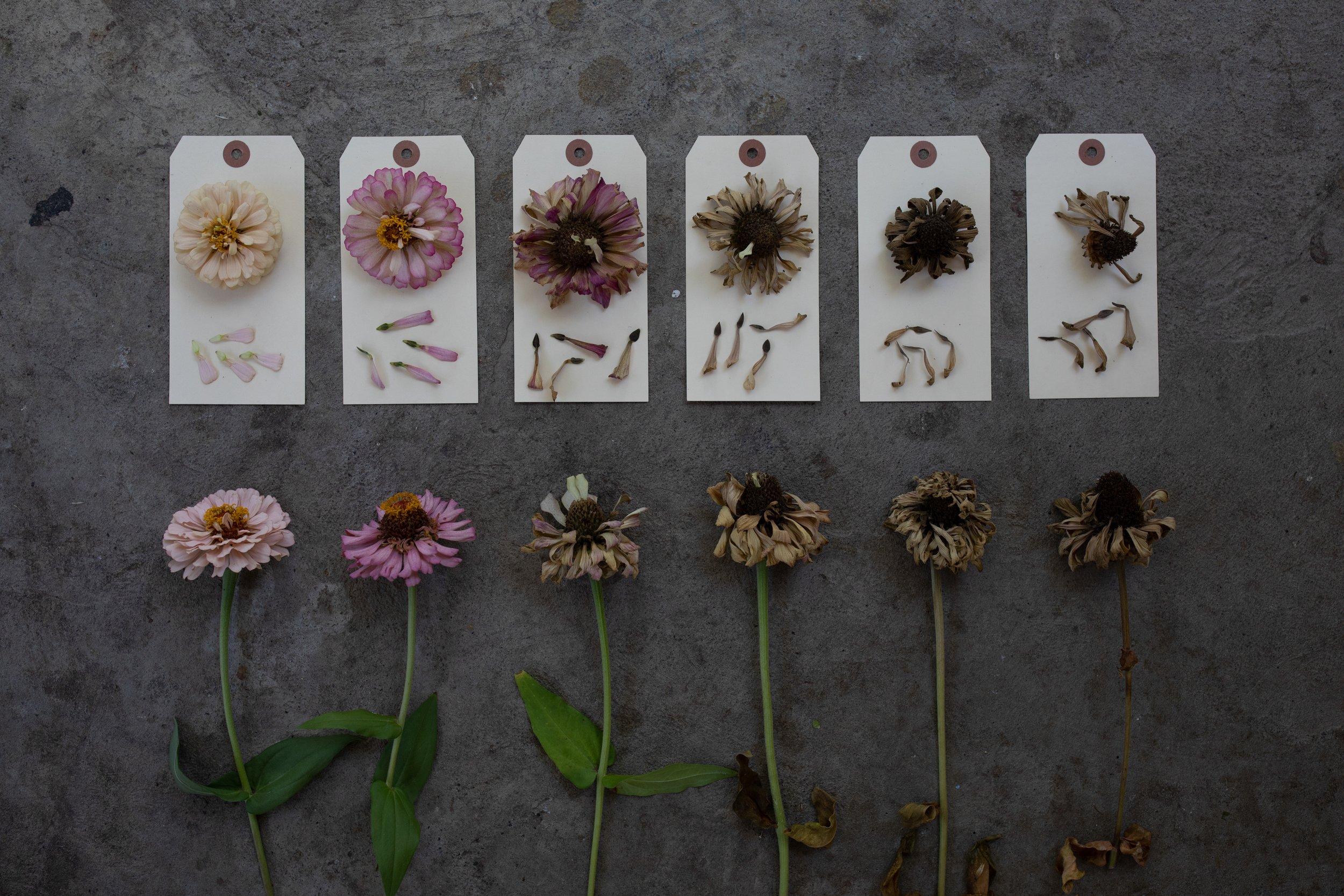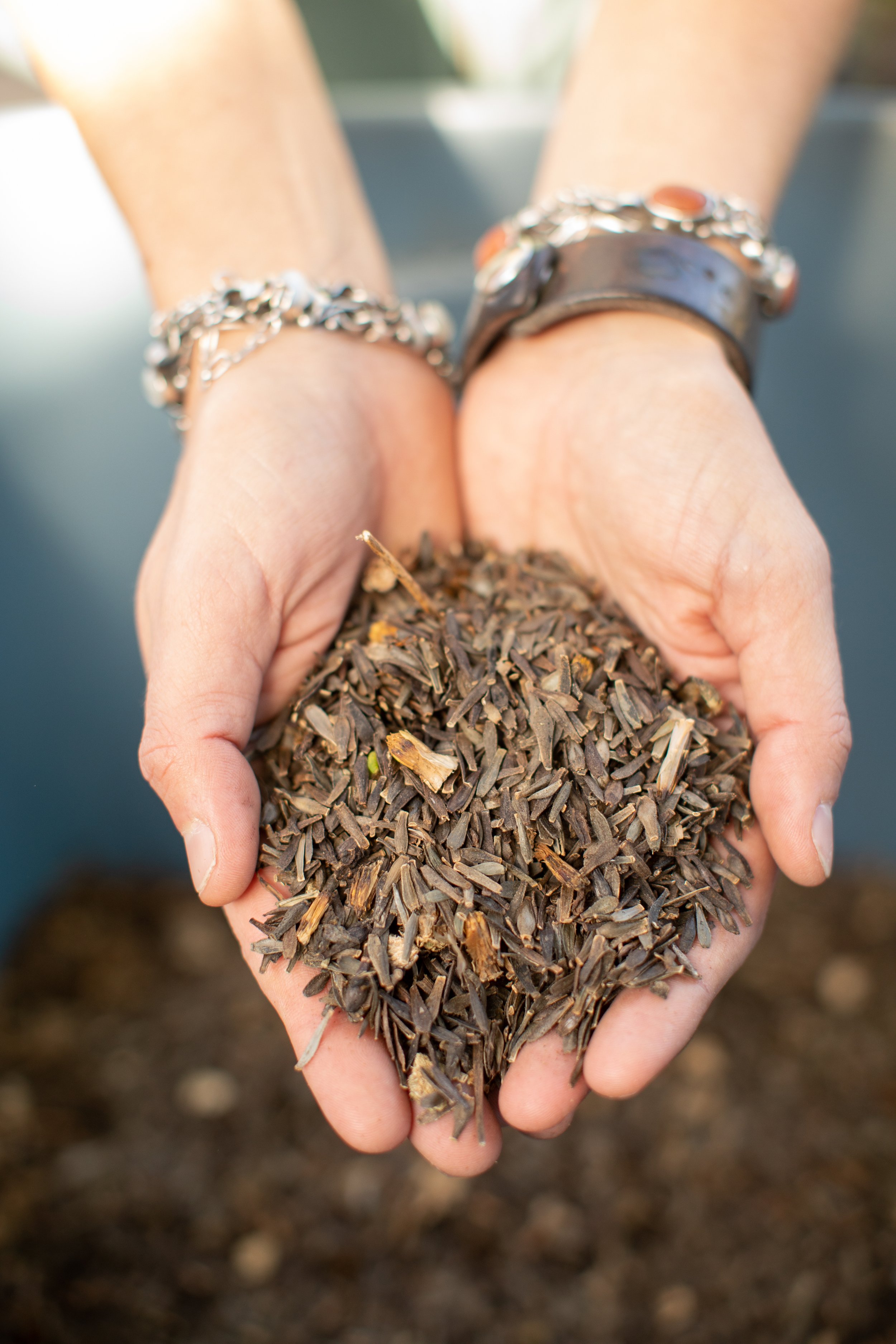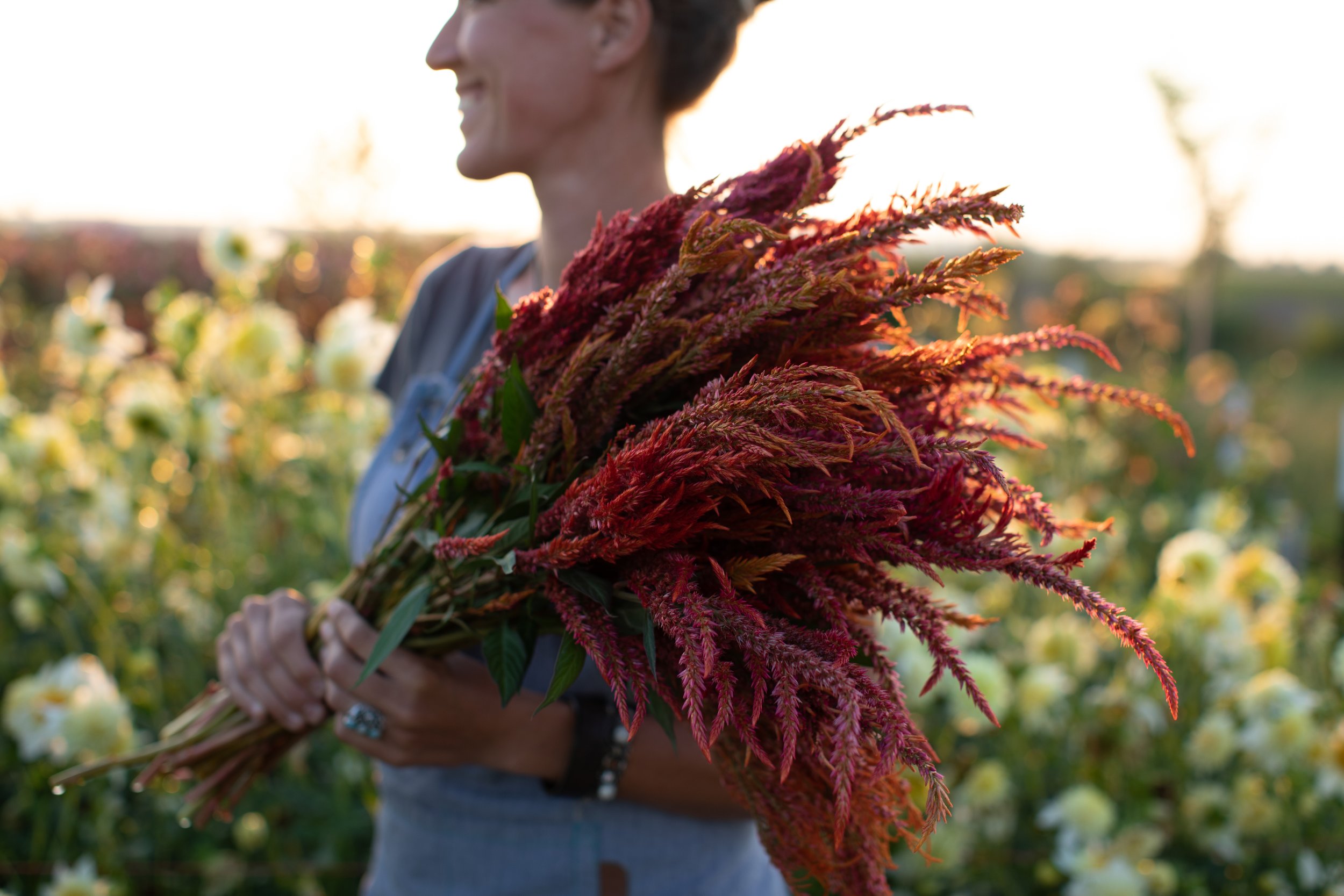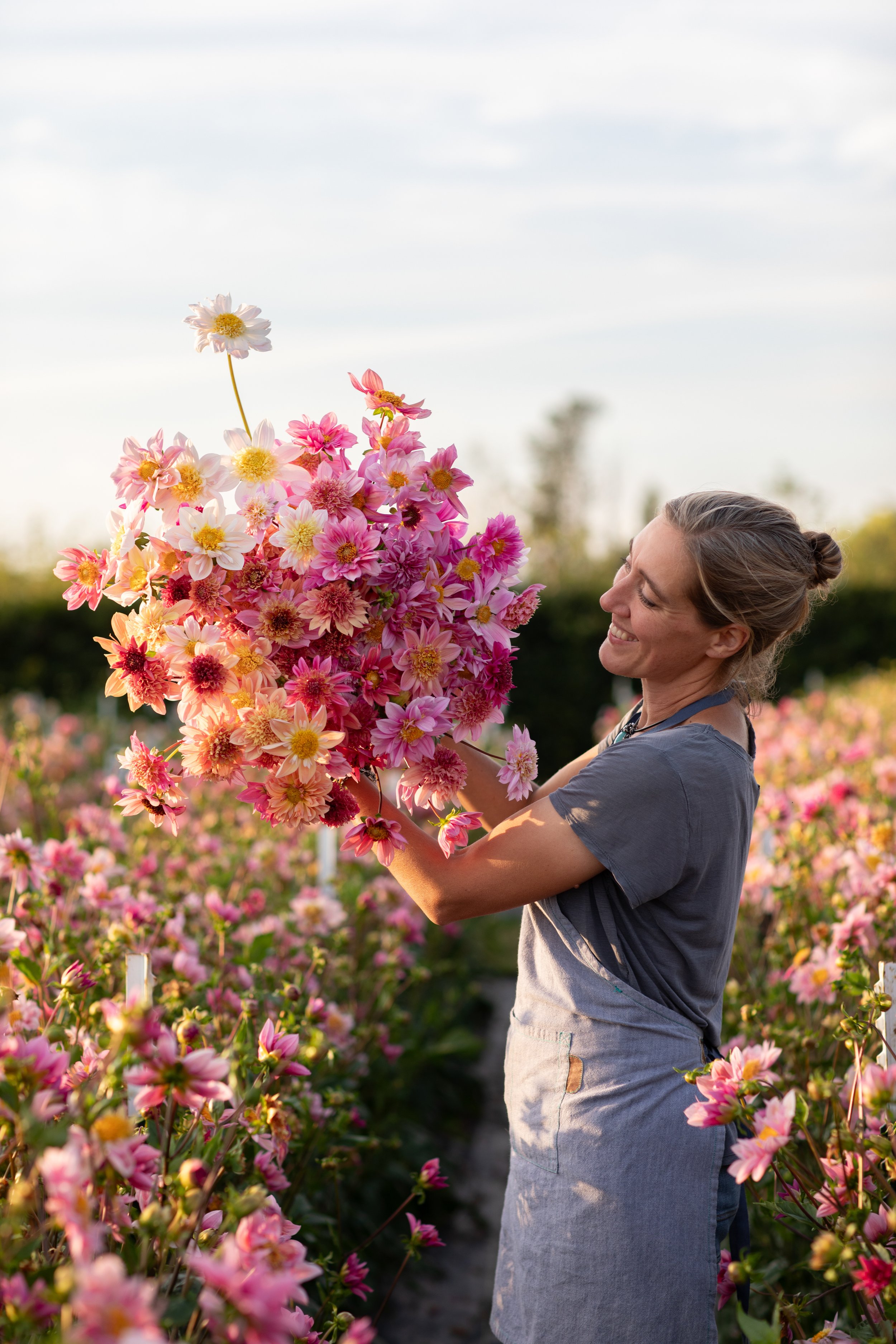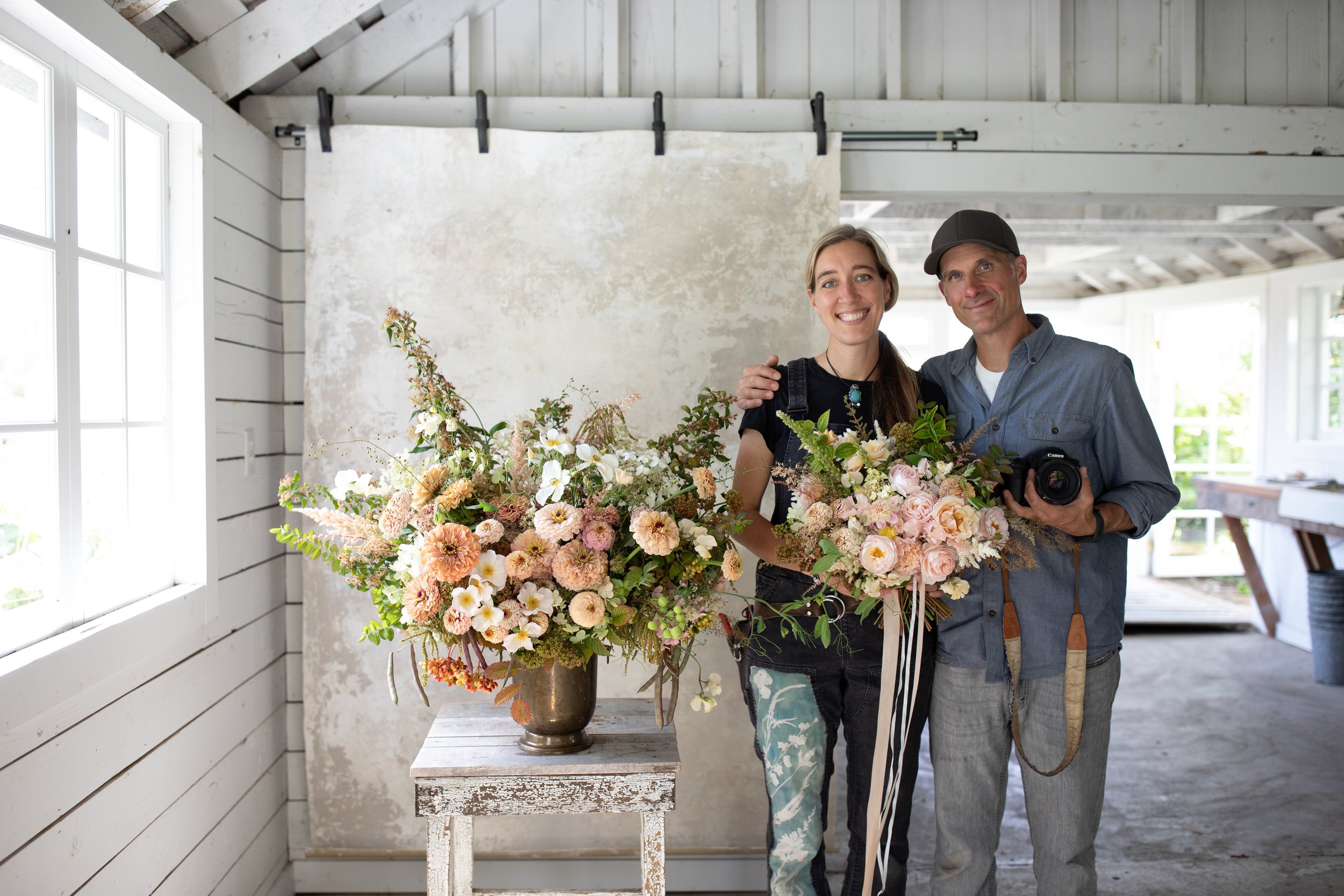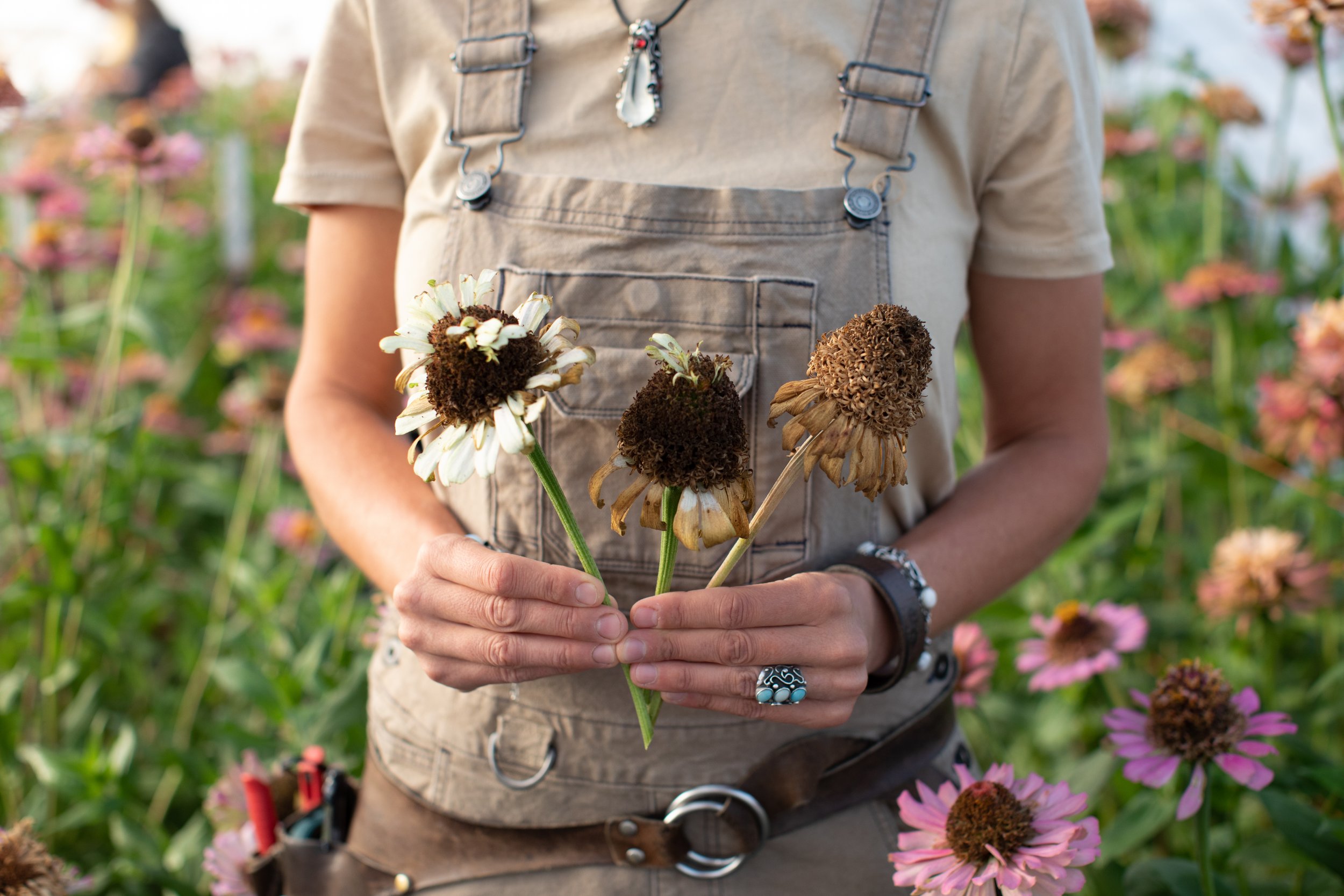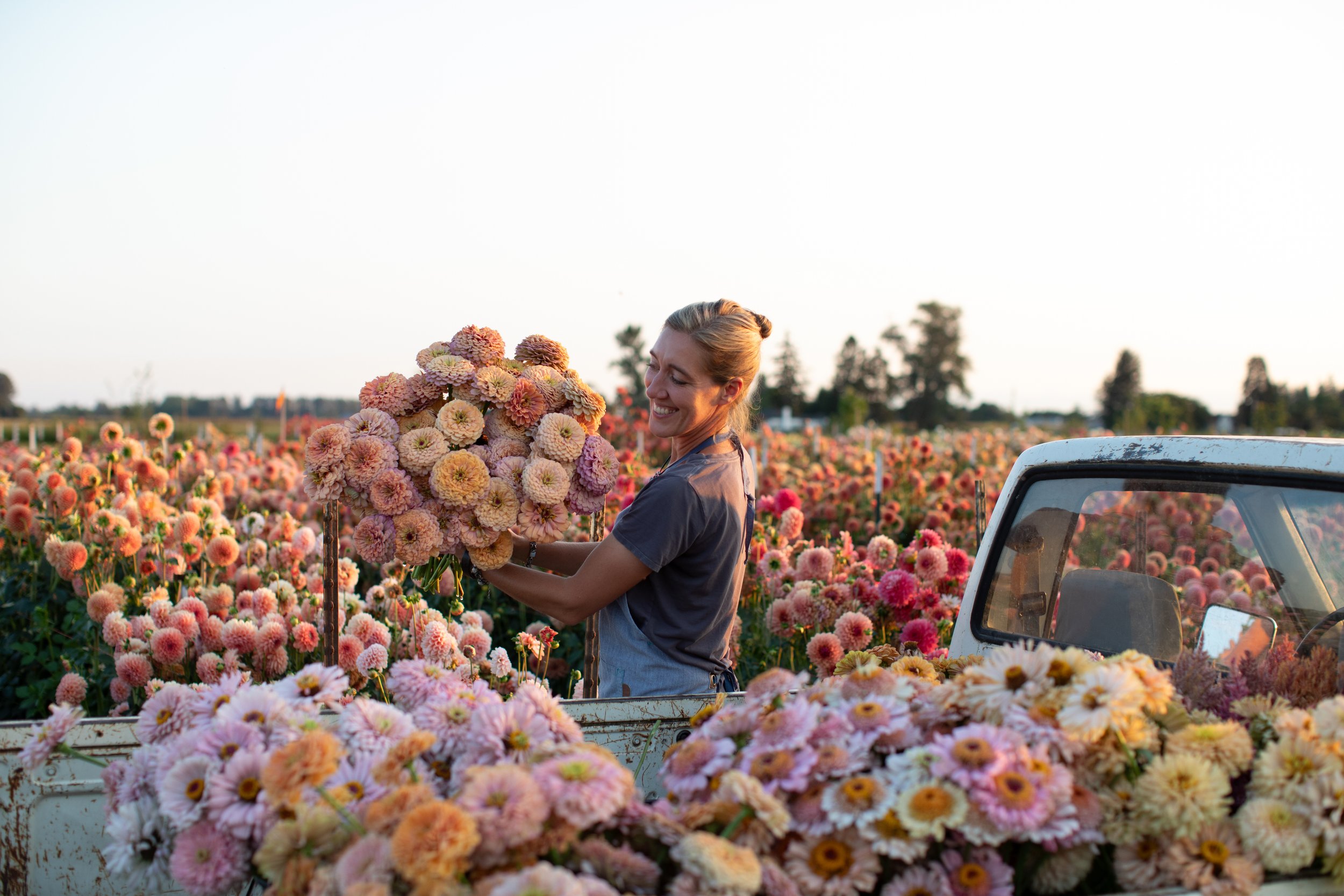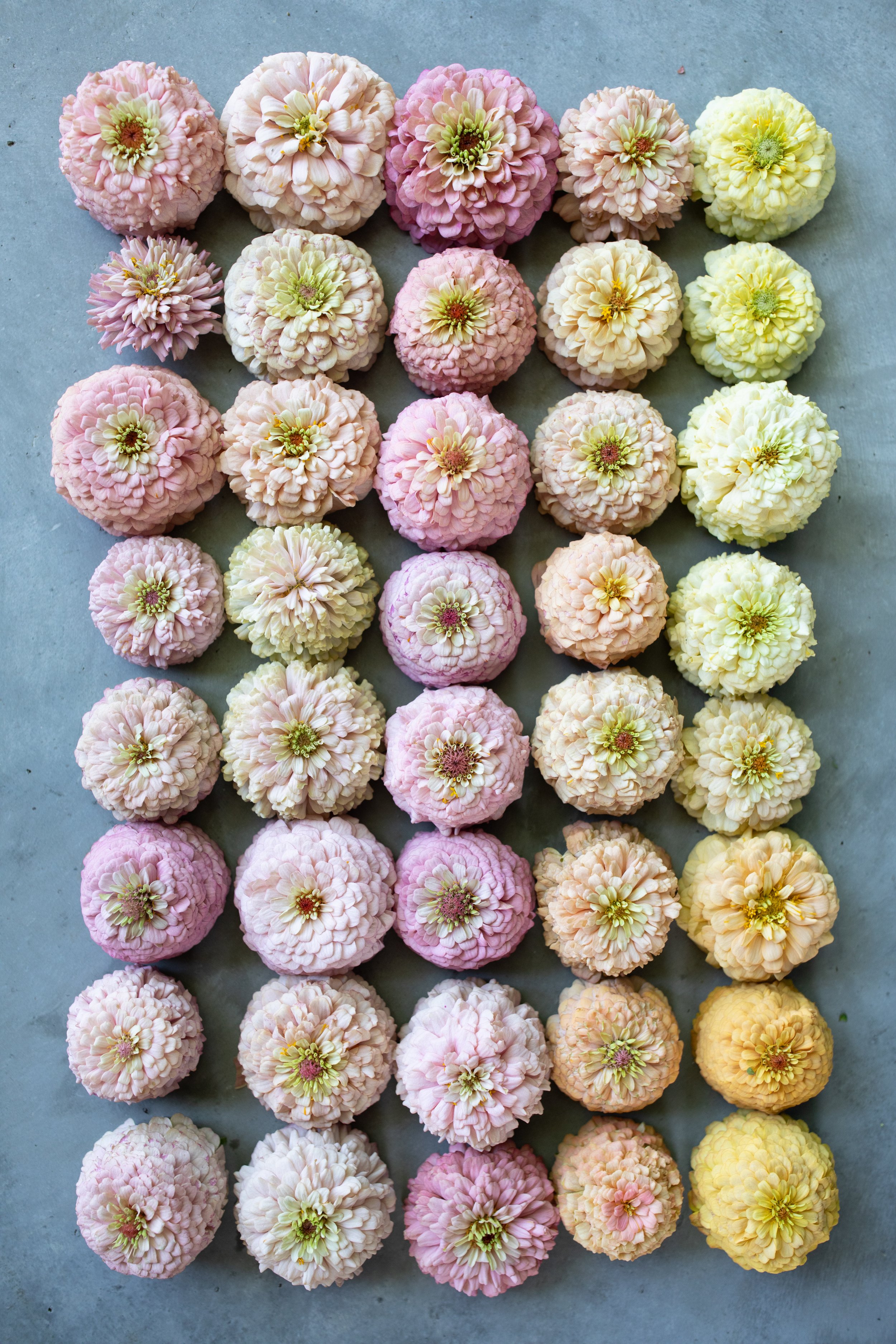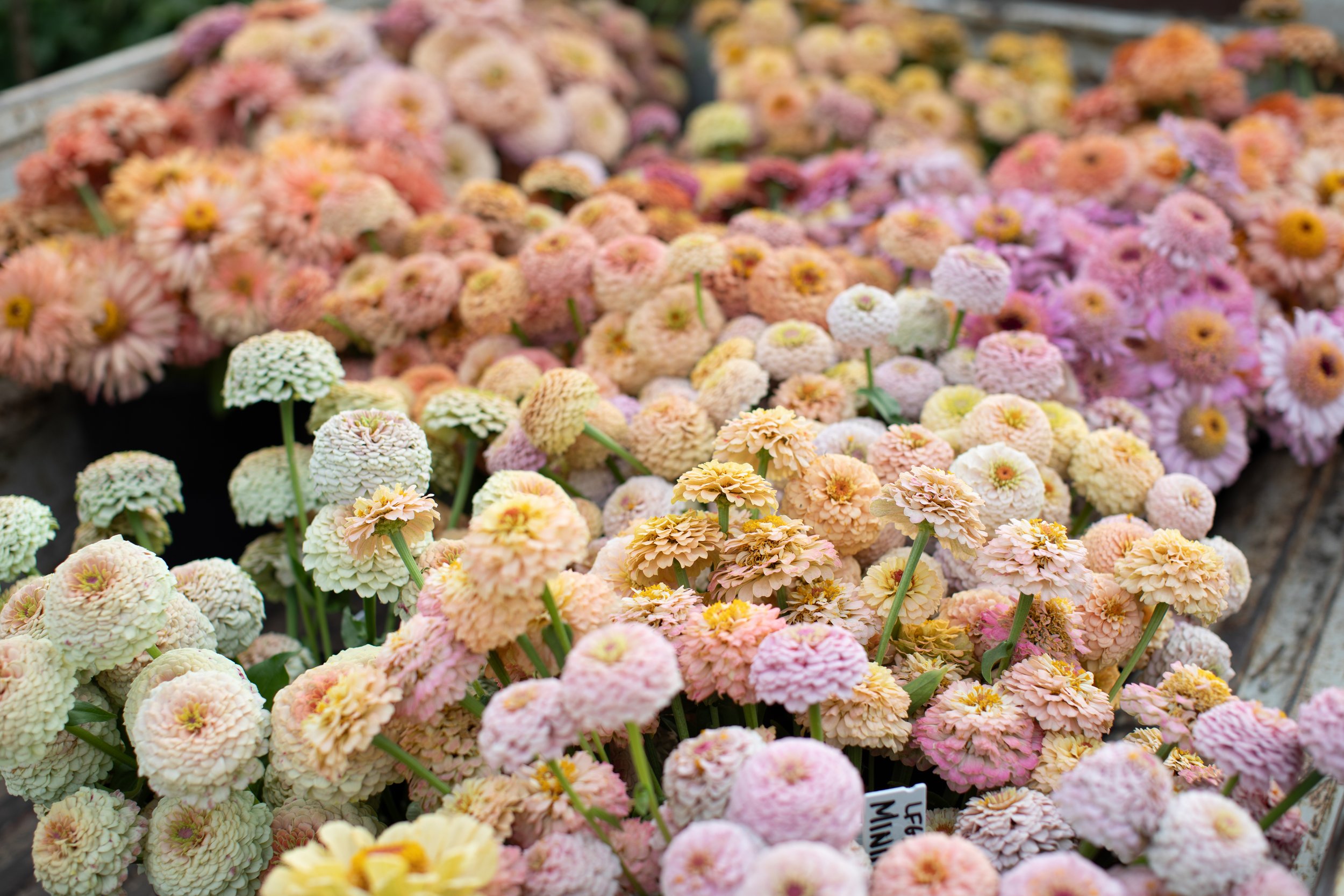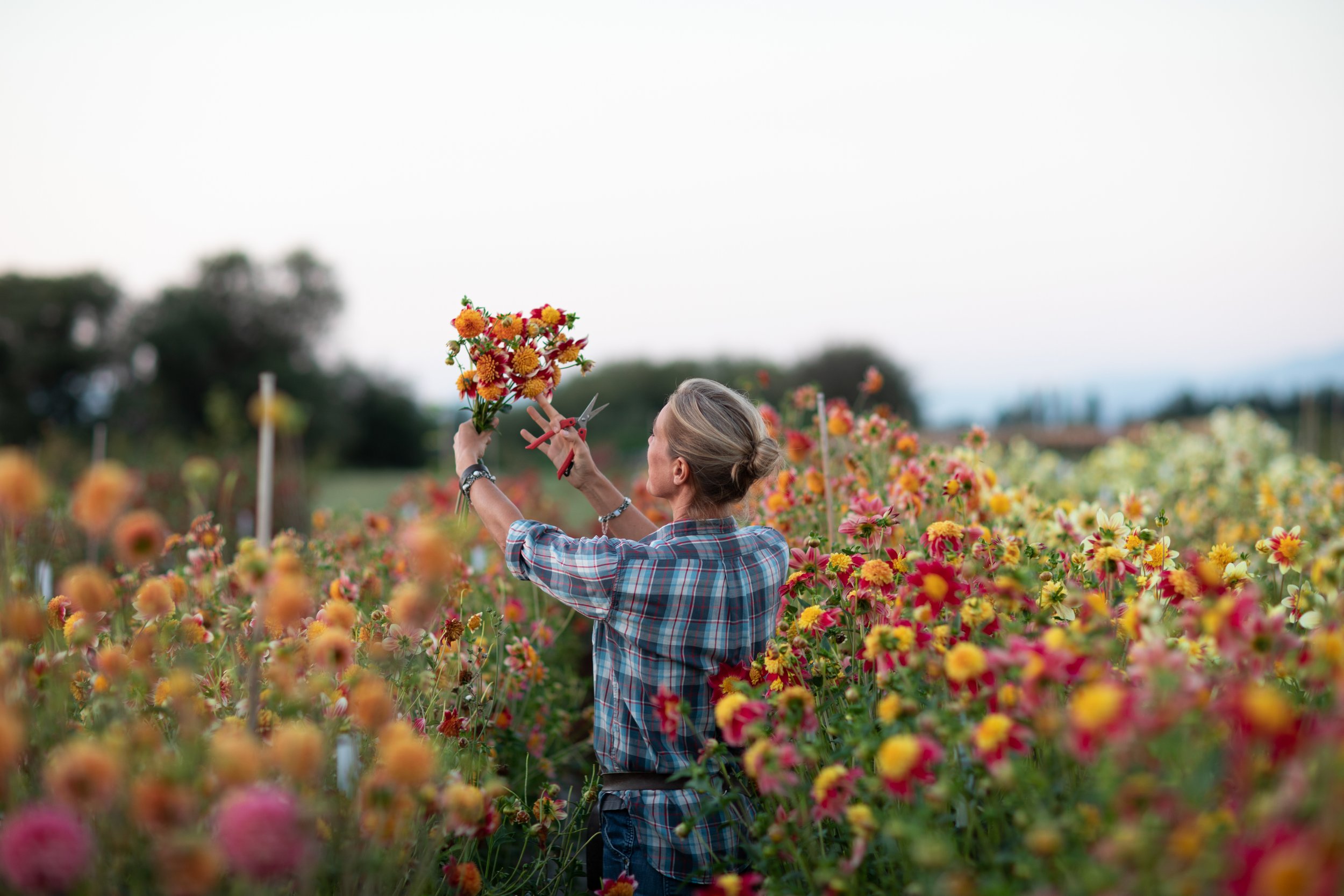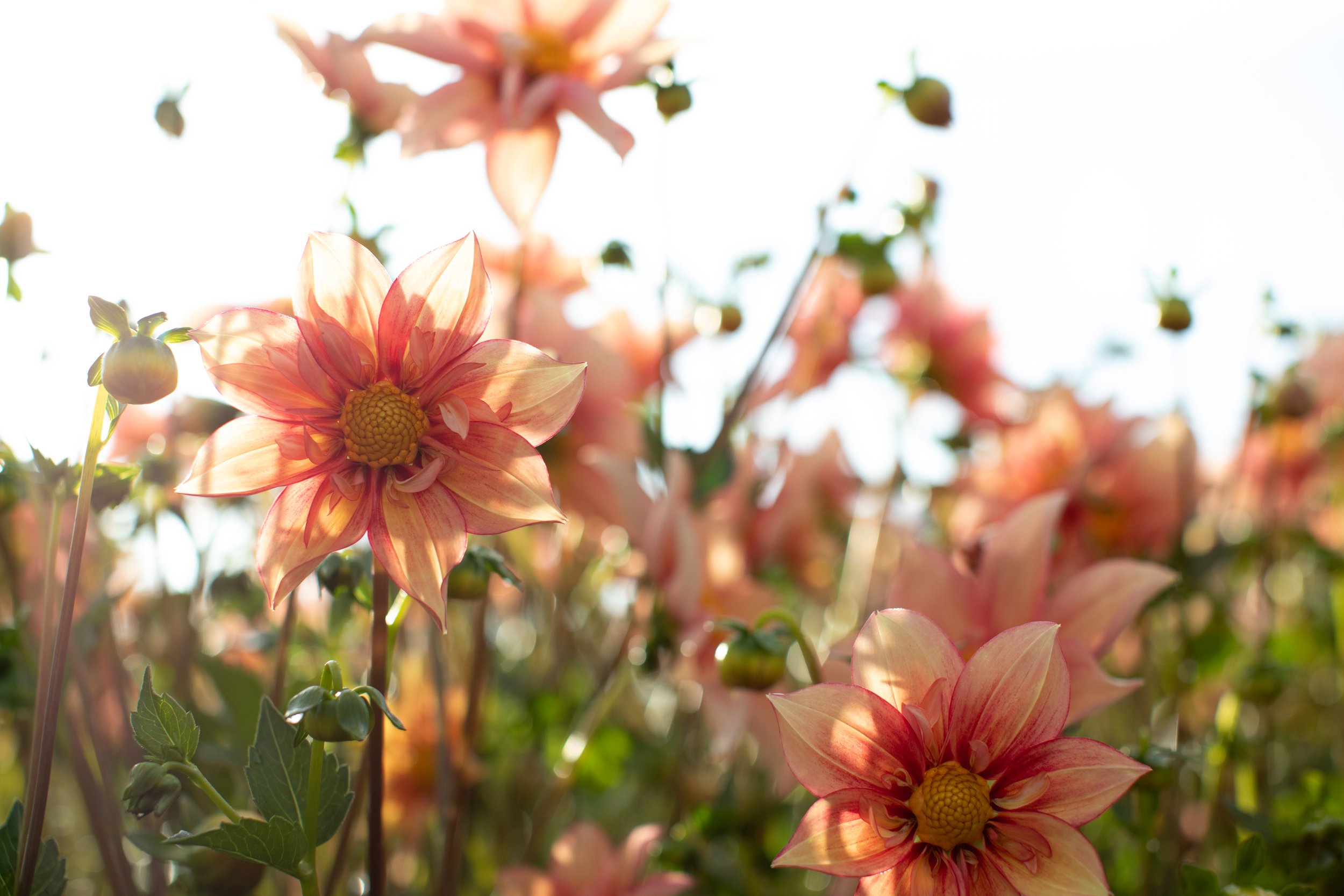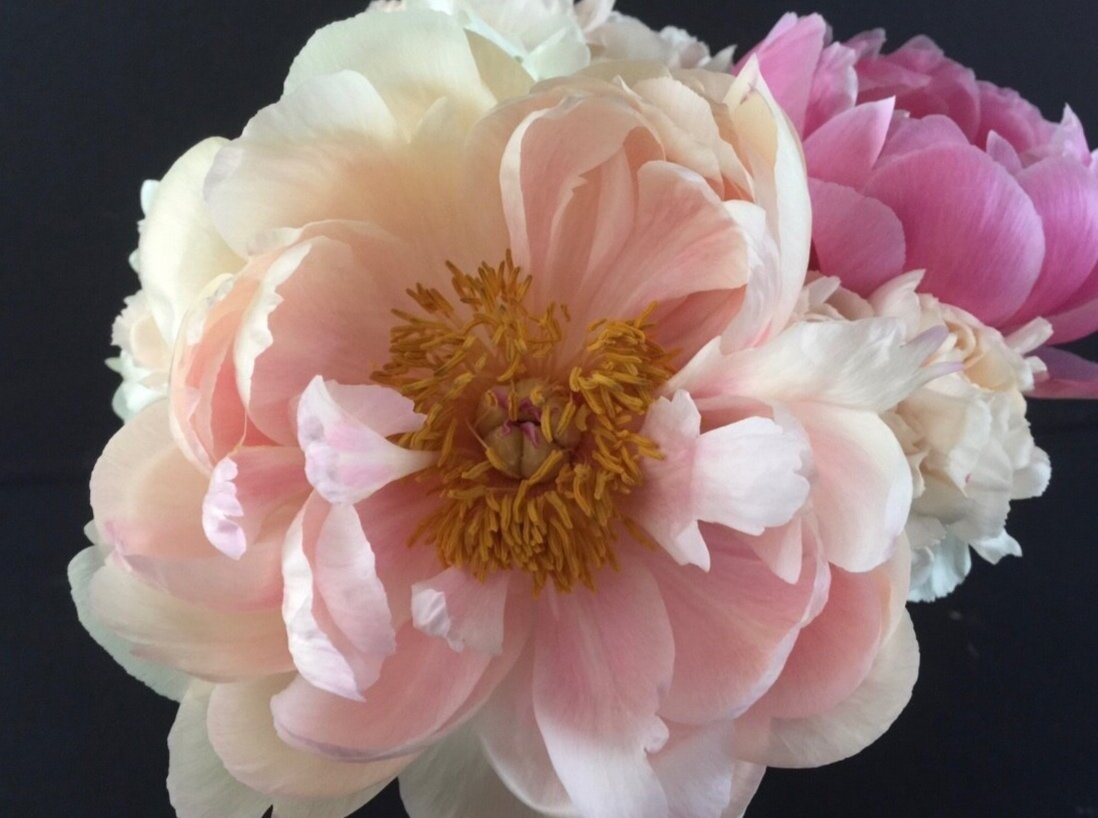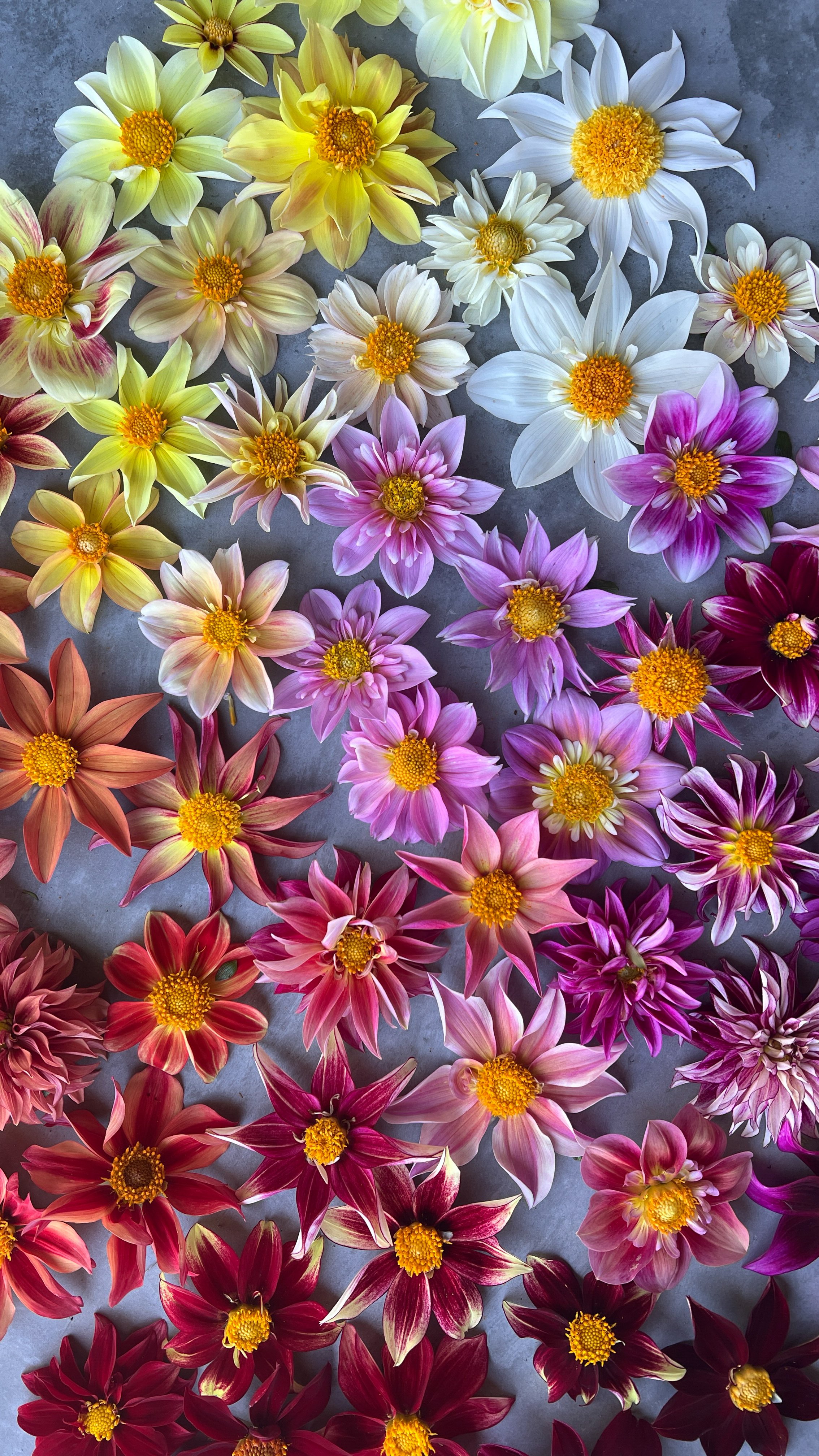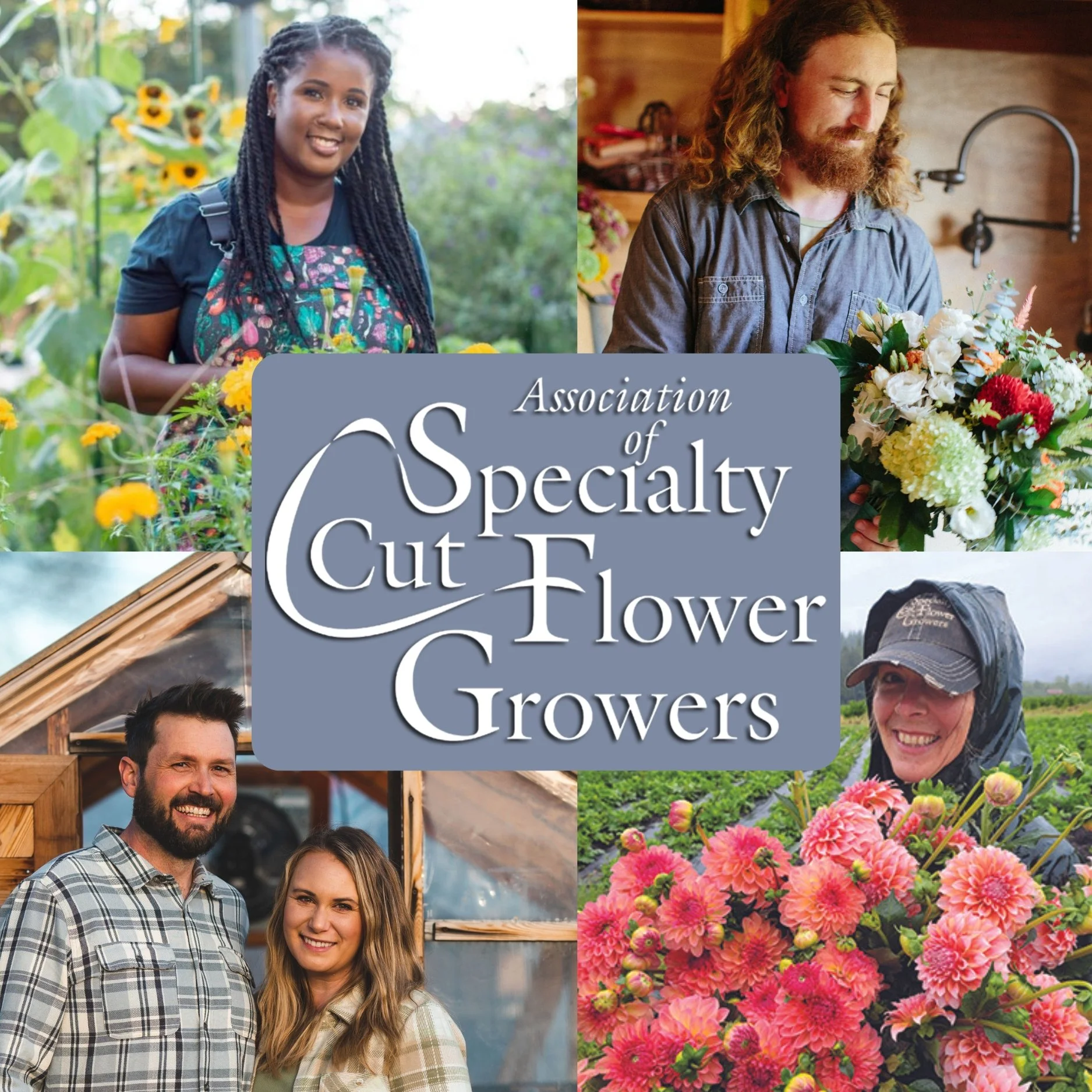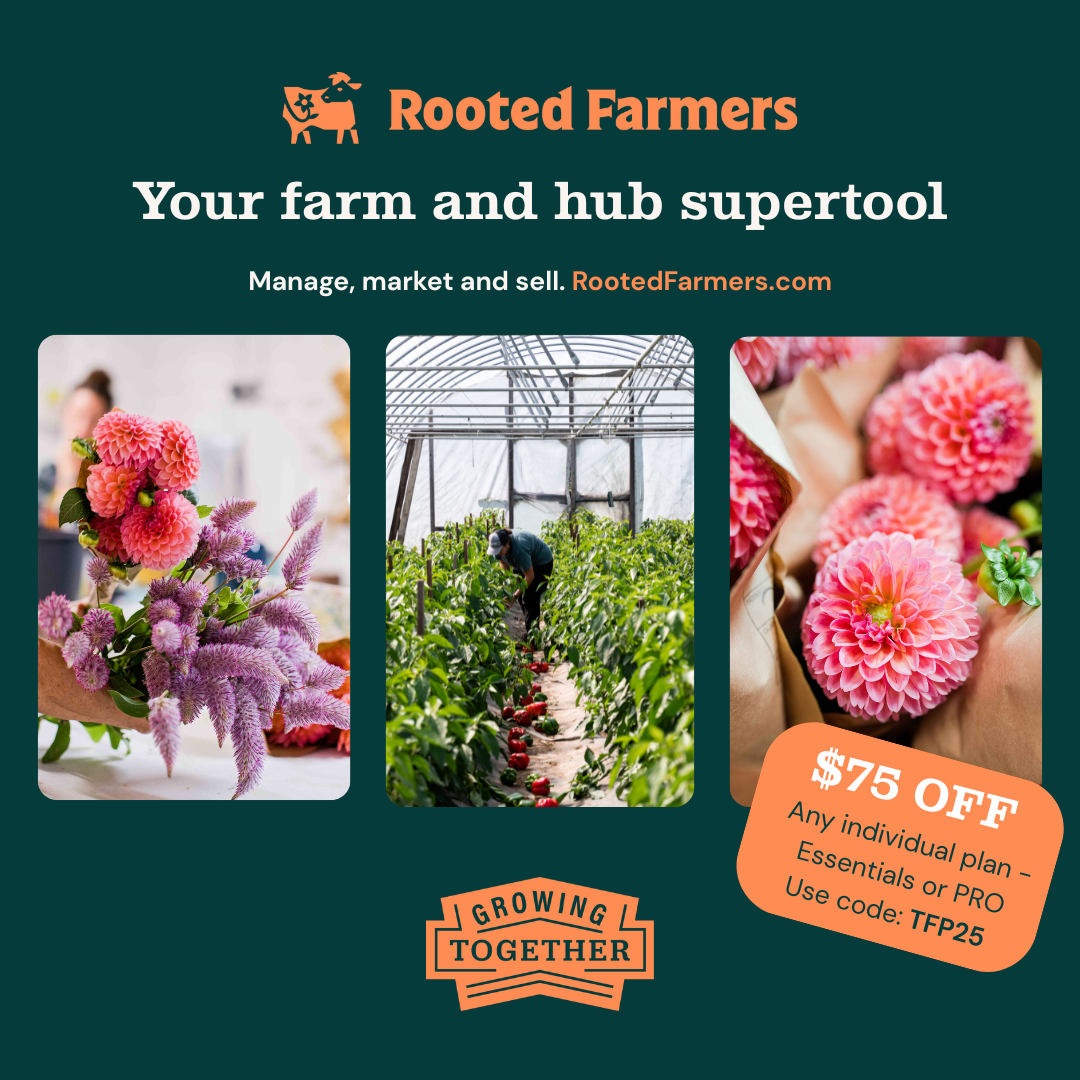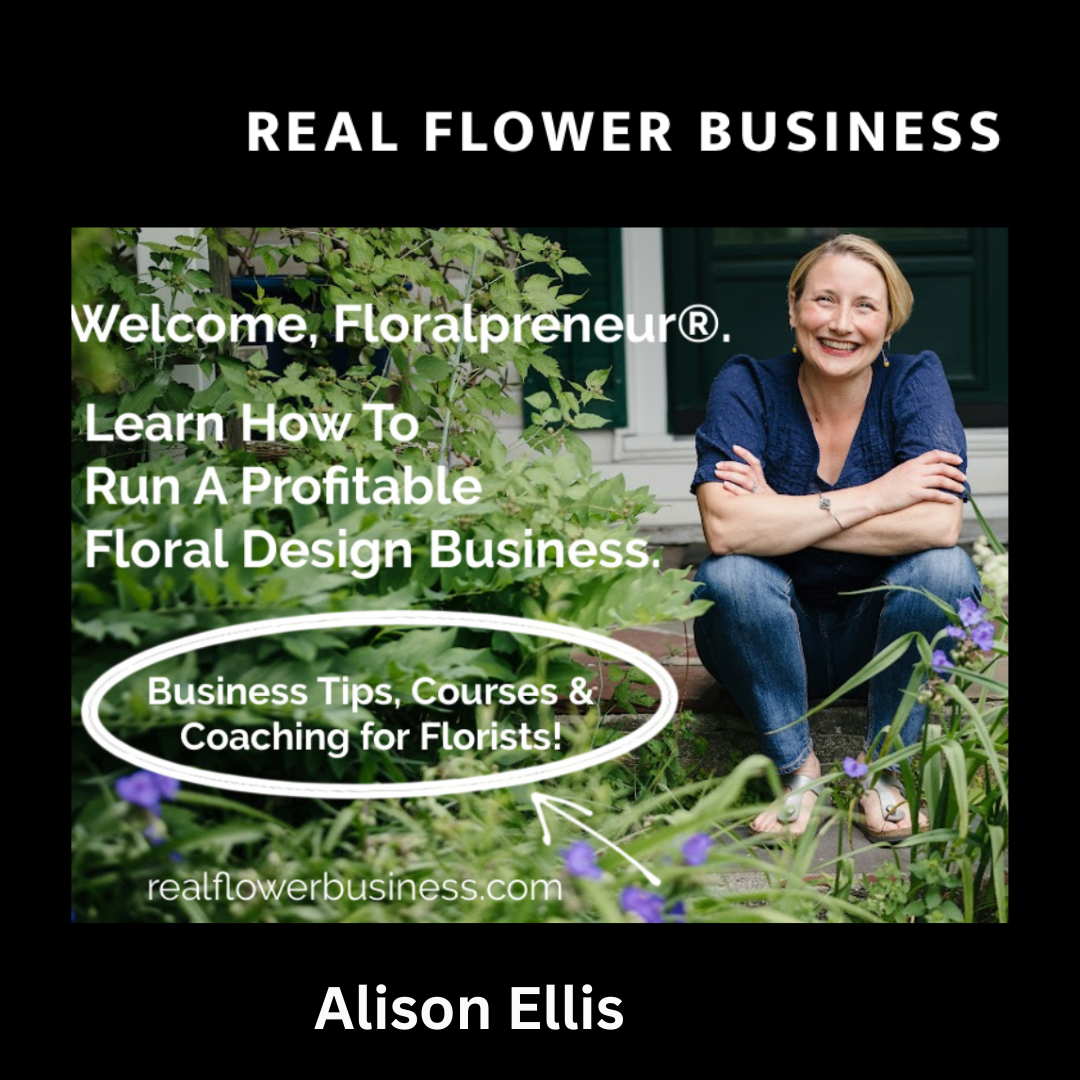Erin Benzakein
Floret Originals at Floret Flower Farm
Considered to be one of the country’s most influential farmer-florists, Erin has shaped floral design trends, redefined small-scale farming, and inspired others to grow, buy, and share seasonal flowers.
Image provided by Chris Benzakein / Floret Originals Copyright
Erin has been featured widely in the press and received prestigious awards, including the Martha Stewart American Made Award and Better Homes and Gardens’ blogger award. She is a New York Times bestselling author of three celebrated books and the executive producer of Growing Floret, an Emmy-nominated documentary television series about Erin and her husband Chris, the Floret team, and the farm, which debuted on the Magnolia Network in 2021. A second season of the show premiered in May of 2023 on Max and discovery+.
A researcher and educator at heart, she has helped growers from more than 50 countries build thriving flower-based businesses and gardens through Floret’s Online Workshop. Erin’s passion is cultivating beauty in the world and she is now devoted to breeding new cut flower varieties that will help give local growers an advantage in the marketplace.
Floret Originals
On February 6, Erin will release her first offering of farm-bred seed called “Floret Originals.” Twenty-six varieties out of the hundreds that she is developing will be available to purchase. This is a landmark moment in the gardening community, as tens of thousands of flower growers, designers, and florists have been anxiously waiting years for these special seeds.
Image provided by Chris Benzakein / Floret Originals Copyright
Almost all new flower varieties brought to market come from huge corporations with breeding facilities near the equator where they can grow year-round. The seeds are produced on a massive scale and distributed through an international network of dealers, brokers, and seed companies. These varieties have been bred to withstand the global nature of the floral industry. They are not fragrant. They have a waxy hardness to them. They are made to survive being placed in a box, loaded into the belly of an airplane, and tossed from truck to truck for days or even weeks without water as they are shipped around the world. The end consumer (the farmer or home gardener) is the last person in the chain and is many steps removed from the original source, not knowing how their seeds or flowers were produced, and who grew them.
Erin has trialed thousands of flower varieties and for years advocated for the gardening industry to focus their breeding efforts on plants that could both be grown on local farms or small gardens and also provide high-end designers the flowers they craved. “I was really trying to give a voice to the small grower and say, this is what we actually need. I know we’re small, but together we’re mighty,” she says. Seed companies sent their representatives to Floret, but dismissed Erin’s recommendations.
Image provided by Chris Benzakein / Floret Originals Copyright
She decided to breed the varieties she felt were missing from the marketplace herself. Unfortunately, resources about flower seed saving and breeding are almost non-existent, locked away at corporations competing for maximum profits. Getting reliable and detailed information is nearly impossible. Undeterred, Erin threw herself wholeheartedly into learning as much as possible on her own.
Breeding these flowers became the largest and most ambitious project in the farm’s 18-year history. Erin spent her early mornings, her late evenings, and her weekends with them, trying to understand what they wanted to become. She’s walked hundreds of miles through their rows, constantly scanning for magical traits. She’s built them the best environments she could, given them the best soil, the best nutrients. She’s also watched them succumb to surprise dips in temperatures, pests, and disease.
She has spent the past seven years fully immersed in the complicated, slow, oftentimes discouraging, and completely exhilarating process of mastering the art of seed saving and trying to breed new flower varieties. It’s been a journey of overwhelming joy and heart-wrenching failure. She’s loved them, grieved them, and celebrated them. And finally, it’s time to share them.
Image provided by Chris Benzakein / Floret Originals Copyright
The Floret Originals project will give an advantage to small farmers and gardeners they’ve never had before. These flowers cannot be shipped. They will not last in a box without water. When brides, designers, and florists want to use them, they must go to their local grower. This massively reduces fossil fuel use, keeps money in local communities, and supports the livelihood of farmers and small businesses.
Erin selected and refined the plants to have long, strong stems, beautiful coloring, and a unique form that lends itself to flower arranging. These special new varieties thrive in a wide range of climates, especially those that are hot and humid, a response to our changing environment. They are easy to grow so that even beginning gardeners will have success with them.
Image provided by Chris Benzakein / Floret Originals Copyright
And, there is one more thing that makes the Floret Originals different—they are all open-pollinated.
This means if a farmer or gardener saves the seeds and replants them, the flowers will come back true, with the same attributes and appearance as the previous year. If people save their seed, they will never need to buy these varieties again. Most new varieties sold by the large companies are hybridized and cannot be saved to grow the same plants. Hybrid varieties need to be repurchased every year, creating a dependency.
The Floret Originals put the power back in the hands of the consumer, the grower, the gardener. “My hope is that the work we’re doing here will spark a new generation of flower breeders and seed savers, both hobbyists and professionals, and open up a whole world of possibilities for the seasonal flower movement,” says Erin. “Saving seeds to plant again the next season touches something deep within our collective history as human beings on this earth. It’s an act of sustainability, self-reliance, and empowerment.”
Show Notes
If you’re new to breeding and seed saving, it definitely requires patience.
The shades and colors of flowers can play an important part of connecting with potential customers. You might be able to find or create new markets with these special flowers that are easier to incorporate into weddings and events.
Flies can be disgusting, but I was fascinated by the utilization of these little workers for pollination in smaller confined areas.
Having seeds like these could help set you apart from people that completely rely on the traditional seed companies and their selections.
Don’t give up on your goals and your passions. Everything worth doing comes with it’s own challenges just believe in yourself.
